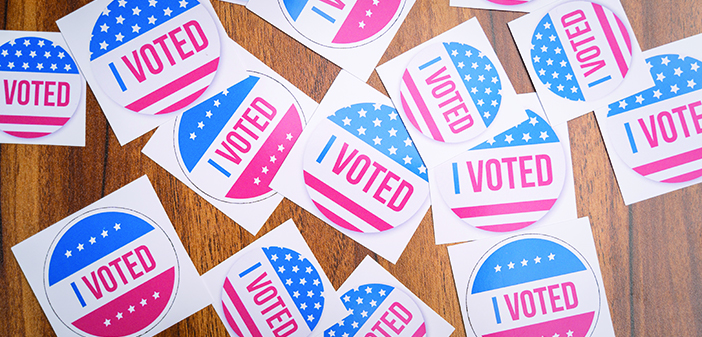Even from a hospital bed, Americans can still exercise their civic duty on Nov. 5.
Americans who know ahead of time that they can’t be at the polls on Election Day can make arrangements to vote by regular absentee ballot. However, those who are unexpectedly hospitalized in the weeks or days before Nov. 5 can still vote, thanks to emergency absentee ballots.
While the process can be lengthy and involve a lot of shuttling of forms, the biggest obstacle is awareness. Most patients and physicians don’t know that this is an option or how to go about registering. Patient Voting, which Kelly Wong Heidepriem RES’22, MD, founded during her emergency medicine residency at Brown after the 2016 election, aims to increase voter turnout among registered voters who are unexpectedly hospitalized leading up to the presidential election.
Patient Voting, now co-led by Nicole Burns ’23 MD’28, has partnered with Vot-ER, a nonprofit that started at Massachusetts General Hospital to mobilize students across the country to secure as many registrations and emergency votes as possible through the Healthy Democracy Campaign.
Voting laws vary from state to state, and volunteers with Patient Voting have worked to make that information easily accessible. Leading up to this election term, the organization has distributed thousands of QR codes through Patient Voting’s website so health care professionals can share them with patients. The site aims to streamline the voter registration process as much as possible, offering a brief description of how emergency absentee ballots work, along with the specific laws for all 50 states.
“Our work is a lot of educating [health care providers]on these policies and coming up with really specialized plans because each state is different,” Burns says.
For example, in Rhode Island, the emergency absentee ballot period begins at 5 p.m., 20 days before the election. Patient Voting guides patients, family members, and their providers through the process, from obtaining the ballot application form to returning the patient’s completed ballot to the State Board of Elections by 8 p.m. on Election Day.
No one plans to be hospitalized, but plans to vote and exercise one’s civic duty can be easily disrupted. “We do as much planning as we can, but people get excited about the election right before it happens,” Burns says. Before the 2020 election, 90 percent of Rhode Islanders who voted did so in person on Election Day. This is why empowering patients with the knowledge that they can still exercise their rights from the hospital bed is so important.
“If we care for the health of our patients and about giving them the best possible treatment when they come into the hospital, we need to care about voting,” Burns says. “Providing someone the opportunity to vote and maintain their right means a lot to people. Eighty percent of health is decided outside of the medical system. By going upstream from these structural determinants of health, voting can create conditions that influence health outcomes.”




